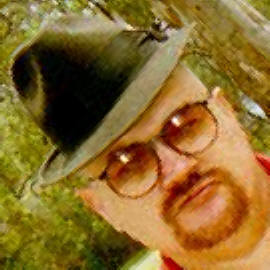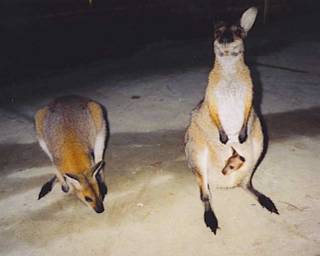On: Grace Karskens, "Public History and Academic History: the common ground".
My Defense of Local Historians
The impression I am left with, on reading Grace Karskens’ views in her "Public History and Academic History: the common ground", (in Public History Review, 1, 1992, p14-25) is that local historians are simply (read: simple) locals, with an interest in the past, who write only for their little corner club; and, that it is only the Professional Public Historian (PPH) that has got it all together, in terms of BOTH scholarly ability and relationship to the community. I think otherwise!
Grace Karskens makes the following determination (p19) ... if time and money is short for producing a commi$$ioned hi$tory (my emphasis), resulting in the “[inability to use] primary sources already located … then "public historians often have to fall back on more readily accessible, but often crude, secondary sources -- like local histories -- and make of them what they can." She also perceives PPHs as being "conduits" between academia and "the wider community outside" (p21).
But, she also says (p21), "the new public historians [have to] deal with non-historians, including ..... people from amateur groups... [such as] historical societies.." She relates "horror stories" about PPHs having contact with, it appears, these tribal manifestations of unclad history-tragics armed only with an elementary arsenal of research weaponry and skilled only in bush-craft (my words).
It seems to be getting down to these things:
1) That Karskens excuses entirely any prospect of a local historian (who is, in fact, a "non-historian" in Karskens’ words) being able to produce a history with any value, that has any currency in the 'history marketplace'.
2) To me, it seems most likely that the local historians are the ones who contribute most significantly to ferreting out and securing primary sources for further research by themselves and others, along with secondary sources, and also produce a bibliography accordingly. This bibliography, of course, becomes a substantial menu for the PPH.
3) It doesn't get any better for Karskens when one comes to realise that it is probably the local historian who HAS researched those very same primary sources to produce their vulgar views, something the PPH may not have time to do in their rush to meet deadlines and remain commercially viable and in the public eye.
4) There is a double standard, entirely, in reducing local histories to a crudity and then rehashing their content with some scholarly spit and professional polish to make them acceptable and meaningful. It is OK for PPHs to harvest local histories for fodder, but “to make of them what they can”, and employ them as the basis of their magically acceptable commi$$ioned hi$tories, at the same time denigrating the source is not. One can wonder to what degree the local historian is recognised in such works produced by a professional.
5) There is potential for PPHs to be non-professional: What, after all, is a professional history without researching the primary sources known to be available? And, since when is it valid for secondary sources to become the primary source of information for the PPH, who junks primary sources in the process because they don't have the time? I contend with Karskens’ claim (p21) that PPH's work is inherently somehow pure: the work of PPHs can indeed be "inherently inferior" to what it could be if PPHs produce half-baked histories based on (allegedly) crude secondary sources at the expense of available primary sources.
6) PPHs invariably are visitors to an area, they come and they go. They do not necessarily have the respect of the community just because they are a paid professional. And they won't have it if they push an external, official version of the locality's history, especially one lacking the richness offered in using primary sources, and devalue the contribution made by those within the community, along lines of 'professional vs. non-professional'.
7) Finally, are not the local historians the ones most likely to have a "meaningful relationship with the wider community" in which they live, and a relationship that is present and continual? The work of the several local historians at Paterson Historical Society and their relationship within and to the local community, and the Lower Hunter region of NSW, stands as a fine example and a testament to the good standing and effectiveness of the unpaid local historian.




0 Comments:
Post a Comment
<< Home